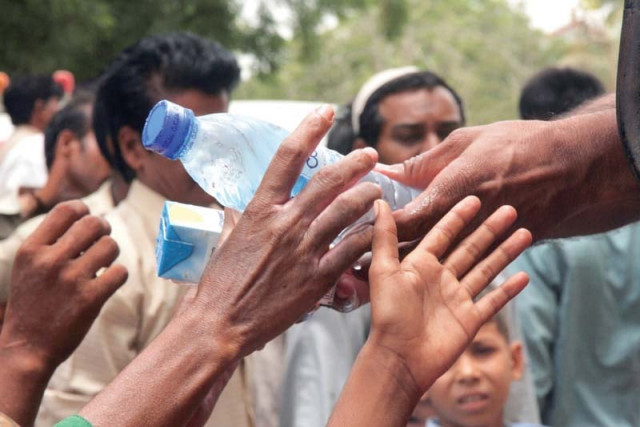Bottlers jack up water prices
Suppliers believe increasing prices is the only way to justify operational costs in current economy

Factors like rising inflation, climate change, and excessive pumping have started affecting people’s access to groundwater resources in the megacity, where water shortages trouble millions every day.
Over time, the city’s water table has reportedly sunk down to several hundred feet, which has made it increasingly difficult for even private water plant owners to bore water, resulting in a drinking water crisis in the city.
In addition to that, owing to the recent devaluation of the rupee against the dollar and the jump in petroleum prices, plant equipment costs have also reportedly gone up by 40 to 50 per cent. This has resulted in desalination plant owners and water suppliers increasing their rates by at least Rs15 to Rs30 for a 19-litre bottle in some areas.
The cost of filling and supplying water tends to vary in each area. Citizens belonging to neighbourhoods that are experiencing jackedup prices of drinking water have urged the government to install its own water plants at the union council level. They fear that as summer progresses, they might be forced to pay even higher prices for a bottle of water.
“In the past, we would get better quality water in the taps so we would boil for drinking purposes. However, ever since water quality in the government pipeline dropped, we have become reliant on water suppliers for fresh drinking water, so the government needs to do something to make sure we do not lose our access to potable water,” said Samira Bano, a local housewife.
According to Ahmed Saeed Siddiqui, who runs a water plant in Karachi, it is a routine affair for water shortages to intensify in the summers. Water plants have been set up in different areas to overcome this crisis and provide drinking water to the citizens. “These plants, most of which are privately owned, desalinate saltwater by processing it through different stages,” he told.
Due to the shortage of water in the city, the groundwater level has now dropped to 300 to 400 feet. Per Siddiqui, the main reason for this is the massive drilling by people in different parts of the city, in a bid to access the continually sinking water table. “Borings now have to be repaired or deepened every six months.
Prices of materials and parts that are imported have also gone up by 50 to 70 per cent owing to the devaluation of the rupee. Therefore, the total cost of repairing the water plant has also increased by at least Rs200,000 to Rs300,000,” he added. Siddiqui believes that his business of water desalination is no longer a lucrative option in the current economy.
In addition to cost issues, electricity shortages have also become a major obstacle for his work, owing to which they have had to increase their prices to meet the new overheads.
Speaking in this regard, Muhammad Junaid, a young man who supplies drinking water to homes, offices, and markets, said that the water supply business had attracted a lot of people during the days of Covid-19 when layoffs were common. It was a low investment opportunity and required as little as Rs25,000 and a motorcycle, so many young people who were suddenly unemployed joined this business. “However petroleum prices have gone up by manifolds since then, so the price of water cans will have to increase in all areas, especially those that are furthest from the plant, to justify operations,” he told The Express Tribune.



















COMMENTS
Comments are moderated and generally will be posted if they are on-topic and not abusive.
For more information, please see our Comments FAQ